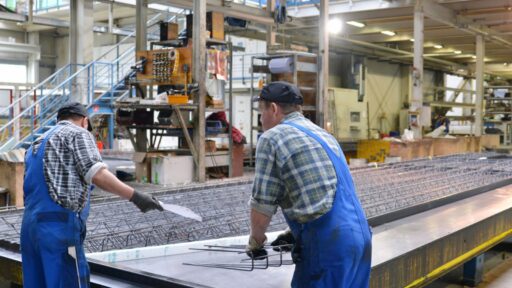Discover Why a CRM Is Essential for Manufacturing Companies in 2025 ?
Industrial Management Demands Precision and Responsiveness
For manufacturing companies, every order, product specification, and delivery deadline is critical. By 2025, customer expectations go beyond mere availability: they demand greater customization, full transparency on order progress, and a globally optimized supply chain. A CRM (Customer Relationship Management) system tailored to the industrial sector allows you to track each customer, coordinate sales, planning, and production teams, and automate follow-ups and notifications. With a CRM, communications are structured, information flows seamlessly between departments, and customer needs are anticipated before they become urgent.
Sector-Specific Challenges
Manufacturing companies interact daily with multiple stakeholders: B2B buyers, specialized technicians, and logistics service providers. Sales cycles can span several months, involving detailed quotes, technical validations, contract negotiations, and finally, production planning. Coordination between sales teams, production planners, quality control, and after-sales service is crucial to avoid delays and mistakes. Without unified visibility, order statuses get lost in spreadsheets, emails, and ERP files, preventing any real-time responsiveness to unforeseen events (stockouts, quality issues, or logistics incidents).
Common Mistakes Without a CRM
Late or forgotten quotes: Without a centralized system, some quote requests go unanswered, hurting conversion rates.
Information lost between departments: Technical details, customer changes, or delivery conditions can disappear in the communication chain.
Manual follow-ups forgotten or duplicated: Tracking follow-ups becomes complicated, leading to either too many reminders or missed ones, which frustrates customers.
Difficulty tracking production progress: Without a direct link between the CRM and the production schedule, it’s impossible to accurately update customers on their order status.
Scattered and outdated customer data: Addresses, contacts, or purchase histories are not kept current, which undermines personalization and trust.
How a CRM Transforms Industrial Operations
An industrial CRM centralizes customer information, quotes, orders, and support tickets in a single platform. It provides a 360° view of each customer account: communication history, status of each quote, expected delivery dates, and after-sales support records. The CRM automates:
Follow-ups:
Scheduled at precise intervals (for example, three days after sending a quote or one week without feedback) to enhance responsiveness.
Quote dispatch:
Automatic generation of standardized documents with tracking of opens and views.
Internal notifications:
Alerts sent to production planners when a contract is confirmed, or to the quality team if a defect is reported.
For instance, a manufacturer of agricultural machinery can configure its CRM to automatically schedule a follow-up three days after sending a quote. Once the order is confirmed, the CRM generates an alert for the production manager to create the manufacturing batch and informs the logistics team to reserve necessary components.
Conclusion
In 2025, for manufacturing companies, a CRM is no longer just a sales tool but a major productivity lever. It structures customer relationships, centralizes all interactions, and automates critical processes. With a tailored CRM, manufacturers enhance their responsiveness, reduce coordination errors between departments, and support organized, sustainable growth.












